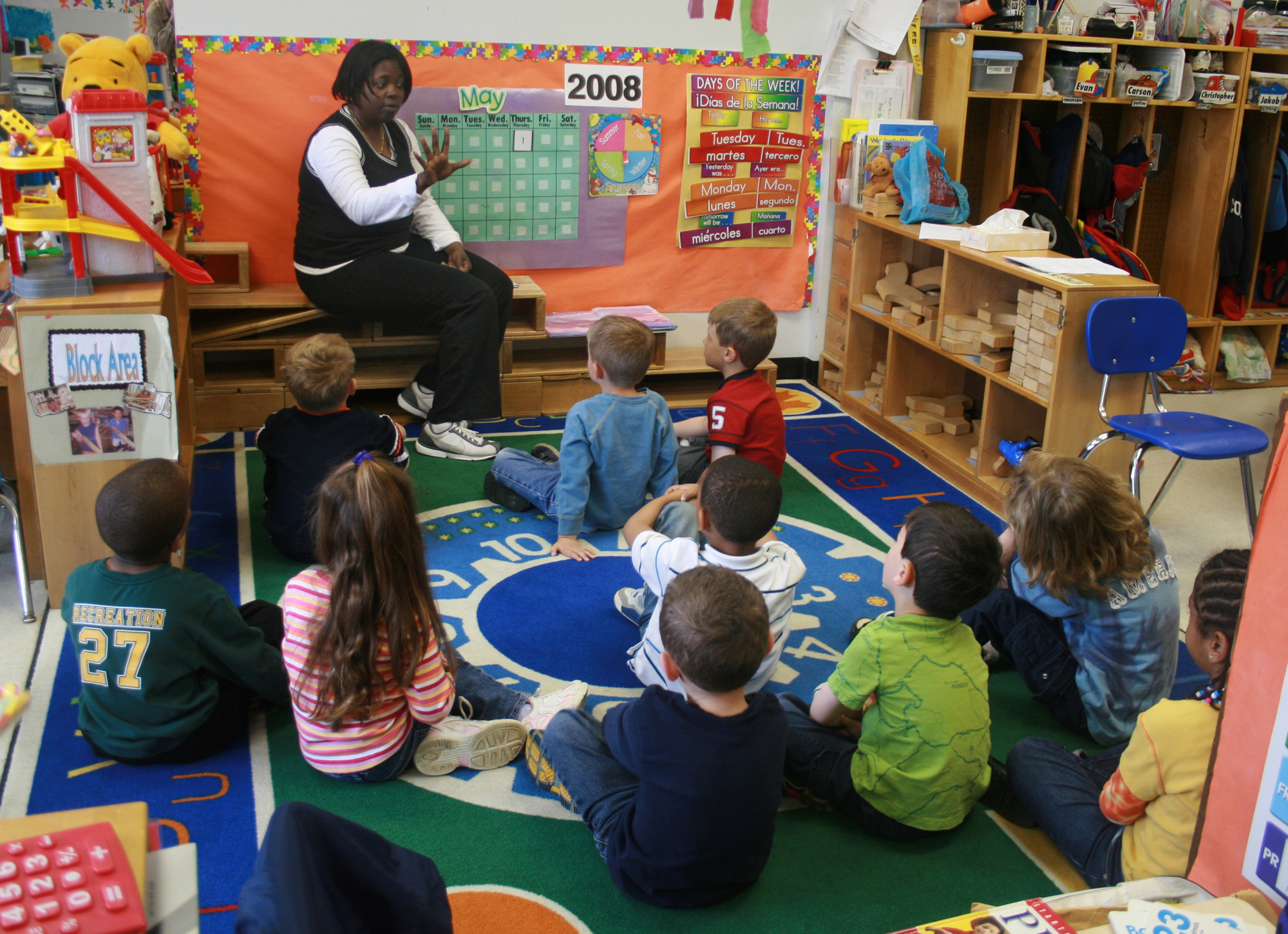As the Director of Special Education, your main responsibility is to oversee all aspects of special education programs within the organization in order to ensure the academic and personal success of students with disabilities. With expertise in special education policies and regulations, you will develop and implement effective strategies that address the unique needs of these students, collaborate with teachers and parents to create individualized education plans, and provide ongoing support and guidance to ensure the delivery of high-quality special education services.
The Role Of A Director Of Special Education
A Director of Special Education plays a vital role in the education system, ensuring that students with special needs receive the support and resources they require. They oversee the implementation of special education programs, collaborating with teachers, parents, and other school staff to create individualized education plans.
They also work closely with community organizations and outside agencies to provide the necessary services and accommodations for students with disabilities. The Director of Special Education stays updated on the latest laws and regulations concerning special education, ensuring compliance and advocating for the rights of students with disabilities.
Their expertise and guidance help promote inclusivity and equal opportunity for all students, making their role of utmost importance in the educational landscape.
Ensuring Inclusive Education For All Students
The Director of Special Education plays a crucial role in ensuring inclusive education for all students. They take the lead in creating an inclusive learning environment by collaborating with teachers and staff to provide necessary support to students. Their efforts aim to accommodate the unique needs of students with disabilities and promote their full participation in the educational setting.
Through effective communication and coordination with educators and administrators, the Director of Special Education works towards the implementation of inclusive practices and the provision of necessary resources. By fostering a supportive and inclusive environment, students with special needs can access quality education tailored to their individual requirements, ensuring their success and overall development.
Developing Individualized Education Plans (Ieps)
Developing Individualized Education Plans (IEPs) is crucial for students with special needs. These personalized plans are designed to address the unique requirements of each student and ensure they receive the necessary support to succeed academically and socially. One key aspect of creating effective IEPs is collaborating with parents and guardians.
By actively involving them in the process, educators can gain valuable insights into the student’s strengths, weaknesses, and goals. This collaboration enables the education team to develop a comprehensive plan that meets the student’s specific needs. Parents and guardians play a vital role in advocating for their child and providing important input that helps shape the IEP.
Together, educators and families can create a supportive and inclusive learning environment where students can thrive. By recognizing the importance of IEPs and collaborating with parents, we can empower students with special needs to achieve their full potential.
Supporting Teachers And Special Education Staff
The Director of Special Education plays a crucial role in supporting teachers and special education staff. They understand the importance of providing professional development opportunities to enhance their skills and knowledge. By offering valuable resources and guidance, they ensure effective instruction for students with special needs.
The Director focuses on creating an environment where teachers can excel in their roles and provide the necessary support to students. They collaborate with educators to identify their needs, and then tailor professional development programs accordingly. The goal is to equip teachers with the tools and strategies required to meet the diverse needs of their students.
Continuous learning and growth are emphasized, enabling teachers to deliver high-quality education and support to students in special education settings. Through their leadership, the Director fosters an inclusive and supportive learning environment for all.
Advocating For Special Education Programs
The role of the Director of Special Education is crucial in advocating for and supporting special education programs. This involves collaborating with school administrators and policymakers to ensure adequate funding and resources are provided. By working closely with stakeholders, the Director can effectively voice the needs of students with special needs and help create inclusive learning environments.
They play an integral role in assessing the unique requirements of students, developing individualized education plans, and implementing supportive interventions. Additionally, the Director monitors program effectiveness, evaluates outcomes, and identifies areas for improvement. Their collaborative efforts aim to advance the quality and availability of special education services, ultimately benefiting students and empowering them to reach their full potential.
Through ongoing advocacy and collaboration, the Director of Special Education helps create positive and inclusive educational experiences for students with special needs.
Fostering Community Partnerships
The Director of Special Education plays a crucial role in fostering community partnerships. By collaborating with local organizations, they can bolster support services. Engaging parents and stakeholders in the special education process is essential for success. Building relationships and leveraging community resources enhance the overall educational experience.
Communication and cooperation between schools and external entities create a network of support. Collaborating with community organizations helps to identify and address the unique needs of students with disabilities. These partnerships cultivate an inclusive environment where every student can thrive.
By working together, educators, families, and community organizations can provide comprehensive support for students with special needs, ensuring their success both inside and outside the classroom.
Monitoring And Evaluating Special Education Programs
The Director of Special Education plays a crucial role in monitoring and evaluating special education programs. Their main objective is to ensure compliance with legal regulations and guidelines. This involves collecting data to assess the effectiveness of these programs. The Director is responsible for tracking and analyzing various metrics to measure the progress and outcomes of the special education initiatives.
By examining the data, they can identify areas that need improvement and make necessary adjustments to enhance the overall program. Their continuous monitoring and evaluation efforts help to maintain high-quality special education services for students with diverse needs. It is through their dedication and commitment that the Director ensures that special education programs meet the required standards and serve their intended purpose.
Embracing Technology In Special Education
Technology is playing a crucial role in enhancing the learning experiences for students with special needs. By utilizing assistive technology, teachers can effectively support and personalize education for these students. Assistive technology helps to bridge any learning gaps, allowing students to actively participate and engage in the learning process.
It provides a variety of tools and resources that cater to the specific needs of individuals, such as speech-to-text software, adaptive keyboards, and visual aids. This ensures that students with special needs can access educational materials and communicate effectively both inside and outside the classroom.
Additionally, assistive technology enables teachers to track and assess student progress, making it easier to tailor educational strategies accordingly. By embracing technology in special education, educators can create a more inclusive and empowering environment that maximizes the potential of every student.
Empowering Students For Future Success
The Director of Special Education plays a crucial role in empowering students with special needs for future success. One important aspect of their role is providing transition support for these students. By offering guidance and resources, the Director promotes independence and helps them develop crucial self-advocacy skills.
These skills are instrumental in enabling students to navigate challenges and make informed decisions throughout their education and beyond. The Director works closely with students, their families, and the broader education community, ensuring a supportive and inclusive environment tailored to meet the unique needs of each student.
Through collaboration, individualized plans, and ongoing communication, the Director of Special Education plays a vital role in preparing students for a successful future. By prioritizing empowerment and self-advocacy, students are better equipped to overcome obstacles, pursue their goals, and thrive in all aspects of their lives.
Challenges And Future Directions In Special Education
Special education faces numerous challenges in addressing the achievement gap for students with special needs. It requires a careful examination of potential reforms and improvements to enhance their educational experiences. It is crucial to bridge the gap to ensure equal opportunities for all learners.
By implementing evidence-based practices and offering personalized support, educators can tailor instruction to meet individual needs. Collaboration between educators, families, and community stakeholders is essential to develop innovative strategies. Technology plays a vital role in providing access to educational resources and assistive technologies.
Encouraging inclusive practices and promoting a positive and supportive learning environment are also important aspects. With continuous commitment and exploration of new methods, the future of special education holds promise for creating an inclusive and equitable education system that empowers every student to succeed.

Credit: thehanovertheatre.org
Conclusion
The role of a Director of Special Education is crucial in ensuring the successful implementation of inclusive education systems and meeting the unique needs of students with disabilities. By overseeing the development and implementation of Individualized Education Programs (IEPs), collaborating with teachers and parents, and providing necessary resources and support, the Director plays a vital role in creating an environment where all students can thrive academically, socially, and emotionally.
Moreover, the Director of Special Education is responsible for staying updated on current laws and regulations pertaining to special education, advocating for the rights of students with disabilities, and fostering a culture of inclusivity within the school community. By promoting necessary accommodations, modifications, and assistive technologies, the Director helps to remove barriers and ensure equal access to education for all students.
Ultimately, the Director of Special Education serves as an advocate, leader, and facilitator in the pursuit of equitable education opportunities. With a deep understanding of the unique needs and potential of students with disabilities, they play a vital role in creating a positive and inclusive learning environment for all.










